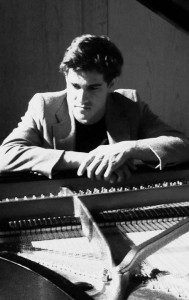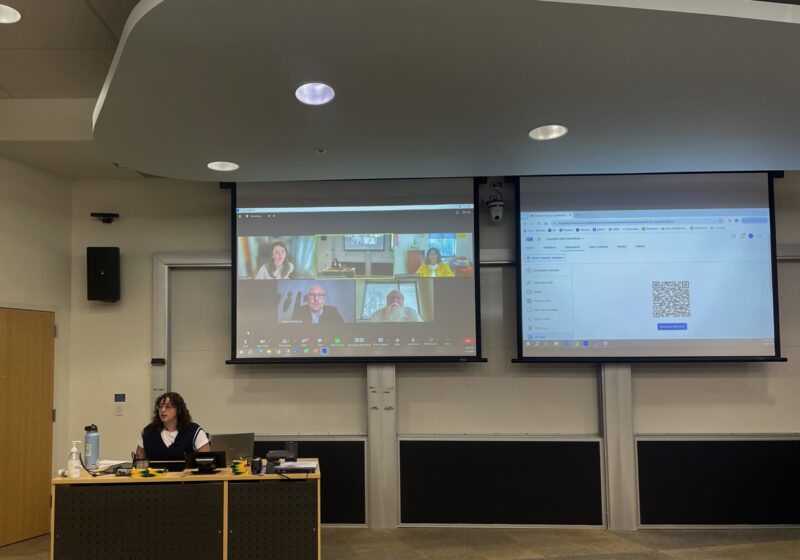Since the age of 10, Eastman School of Music teaching assistant and doctoral candidate Cahill Smith has kept his fingers flying over the piano keys as he’s ascended through the ranks of musical education.
After finishing his bachelor’s degree at the University of Alabama in his hometown of Birmingham, he went on to pursue his master’s degree at the University of Michigan with professor Arthur Greene as his advisor.
Now a doctoral candidate of musical art in piano performance and literature at Eastman, Smith spends his time imparting his musical knowledge as a teaching assistant.
Smith took the time to answer a few questions, letting us into his life as a student, musician and teacher.
Do you ever freeze in front of an audience?
I usually feel incredibly nervous but somehow at home on stage. I don’t think I’ve ever frozen in front of an audience. I’ve played for crowds of three and crowds of 3,000. For me, it takes the pressure off when other performers are on stage, especially in a large orchestra.
Yes, I’ve had my share of memory slips ranging from barely noticeable to disastrous. One of the most important components of becoming a better performer is not only making fewer of those kinds of mistakes, but being able to adjust and recover naturally and intelligently.
Do you have any other fears?
My greatest fear in life, simply put, is wasting it.
What is your favorite quote and why?
I guess I’ve always been a fan of Einstein’s quote, “There are only two ways to live your life. One is as though nothing is a miracle. The other is as though everything is a miracle.”
If you mean about music, ever since I heard this quote by Rachmaninoff, it has resonated with me, in that it describes how I feel almost all of the time: “Music is enough for a lifetime, but a lifetime is not enough for music.”
The art is just enormous, bigger than any person or empire ever was or will be. Even the small genre that I study is enough to engage my mind and soul for a thousand lifetimes, and it just seems to get bigger every day.
How did you come to play the piano? What do you think is its role in music?
I chose the piano because of the wealth of its repertoire and because of the virtually unparalleled potential for personal expression.
Of course, every instrument has a unique role. Like a conductor, the pianist is responsible for multiple voices simultaneously, but unlike a conductor, [he or she] actively controls those voices and is able to make incredibly subtle, spontaneous adjustments for expression. I am not aware of any other instrument capable of this to the same degree as the piano. It’s the original one-man band.
What is your favorite word?
My favorite word? I once heard that in the English language, “cellar door” is the most phonaesthetically pleasing. I tend to agree.
How about some words that I hate (especially when describing art or music)? “Juxtaposition,” “organic” and “interesting.”
Do you have any words of wisdom to share with us?
I hope that out of the answers I have already provided, at least one word could be considered “wise” by someone.
Ahmed is a member of the class of 2015.





